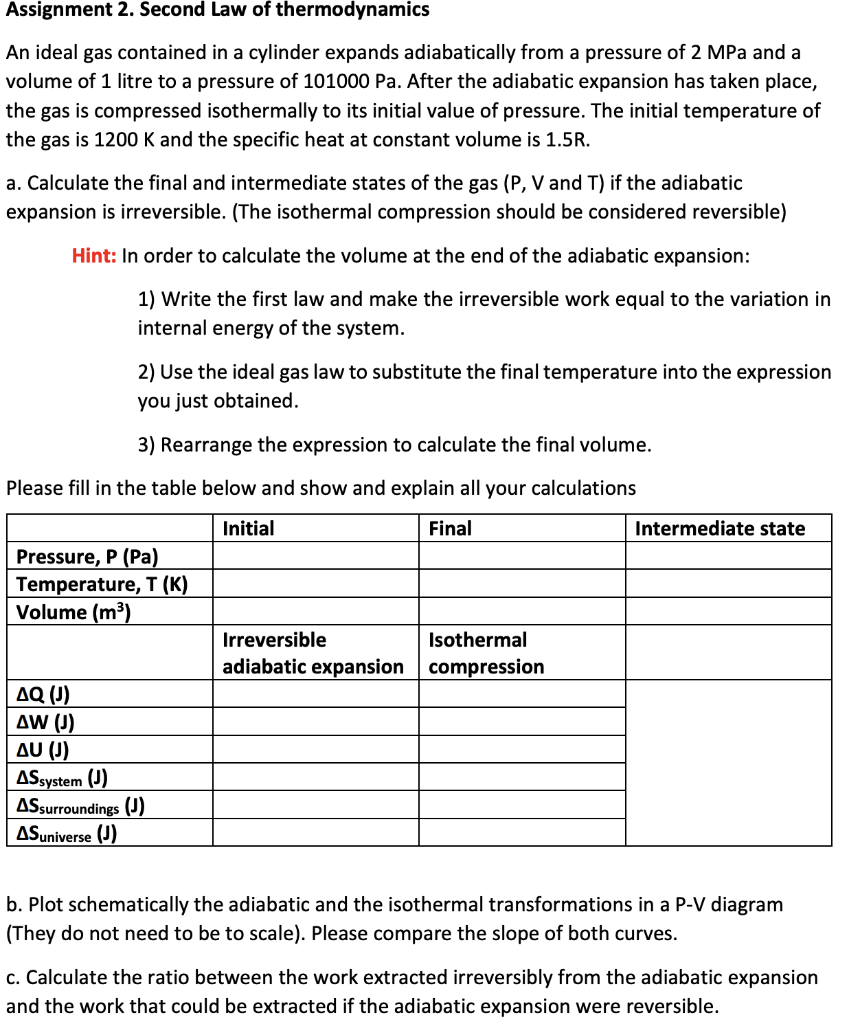

The molecules spread out in all directions lowering the concentrations of he molecules in the original space. What does the second law of thermodynamics have to do with diffusion?ĭiffusion is a direct result of the second law or entropy. The First Law of Thermodynamics, also known as the law of conservation of energy, states that energy can neither be created nor destroyed. These principles govern the chemical processes (metabolism) in all biological organisms. The laws of thermodynamics are important unifying principles of biology. Why are the laws of thermodynamics important?

The Second Law also states that there is a natural tendency of any isolated system to degenerate into a more disordered state. It states that as energy is transferred or transformed, more and more of it is wasted. The Second Law of Thermodynamics is about the quality of energy. The second law doesn't rule out all the molecules ending up in one corner, but it means it's far more likely that the molecules will be randomly distributed, and to move towards a random distribution from an orderly distribution, as opposed to the other way around.What is the significance of second law of thermodynamics? It is much more likely that the molecules are randomly distributed around the box, and are moving in random directions this high disorder state is a considerably higher entropy state.
#WHAT IS SECOND LAW OF THERMODYNAMICS FULL#
With a gas in a box, the probability that all the gas molecules are in one corner of the box at the same time is very small (for a typical box full of 10 20 molecules or more, incredibly small): this is therefore a low entropy state. If you tossed more coins, it would be even less likely that they'd all land heads up, and even more likely that you'd end up with close to the same number of heads as tails. Four heads is less likely, has the most order, and the lowest entropy. The two heads - two tails state is the most likely, shows the most disorder, and has the highest entropy. It is six times more likely that you'll get two heads and two tails. If you have four pennies, for example, the likelihood that all four will land heads up is relatively small. This applies to thermodynamic systems like a gas in a box as well as to tossing coins. There is a strong connection between probability and entropy. The total entropy of the universe is continually increasing. In an irreversible process, entropy always increases, so the change in entropy is positive. If a reversible process occurs, there is no net change in entropy. The second law of thermodynamics can be stated in terms of entropy. For a thermodynamic system involved in a heat transfer of size Q at a temperature T, a change in entropy can be measured by: Although it's difficult to measure the total entropy of a system, it's generally fairly easy to measure changes in entropy. This is the ultimate level of disorder if everything is at the same temperature, no work can be done, and all the energy will end up as the random motion of atoms and molecules.Ī measure of the level of disorder of a system is entropy, represented by S. The second law also predicts the end of the universe: it implies that the universe will end in a "heat death" in which everything is at the same temperature.


One of the most important implications of the second law is that it indicates which way time goes - time naturally flows in a way that increases disorder. Many processes are irreversible, and any irreversible process increases the level of disorder. A pendulum will gradually lose energy and come to a stop, but it doesn't pick up energy spontaneously an ice cube melts to form a puddle, but a puddle never spontaneously transforms itself into an ice cube a glass falling off a table might shatter when it hits the ground, but the pieces will never spontaneously jump back together to form the glass again. If you watched a film forwards and backwards, you would almost certainly be able to tell which way was which because of the way things happen. This applies to anything that flows: it will naturally flow downhill rather than uphill. One implication of the second law is that heat flows spontaneously from a hotter region to a cooler region, but will not flow spontaneously the other way. Systems tend to move from ordered behavior to more random behavior. The second law - The level of disorder in the universe is steadily increasing. The second law of thermodynamics is one of the most fundamental laws of nature, having profound implications. Entropy and the second law Entropy and the second law


 0 kommentar(er)
0 kommentar(er)
